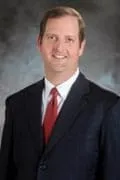On Thursday, a federal judge for the first time found that BP was indeed the primary culprit and that only it had acted with “conscious disregard of known risks.” He added that BP’s “conduct was reckless.” By finding that BP was, in legal parlance, grossly negligent in the disaster, and not merely negligent, United States District Court Judge Carl J. Barbier opened the possibility of $18 billion in new civil penalties for BP, nearly quadruple the maximum Clean Water Act penalty for simple negligence and far more than the $3.5 billion the company has set aside.
“We are pleased,” United States Attorney General Eric H. Holder Jr. said of the ruling. “The court’s finding will ensure that the company is held fully accountable for its recklessness.”
The decision also casts a cloud over BP’s future. Its reputation has already been sullied and important holdings in Russia are at risk because of tensions in Ukraine. In addition to the $28 billion in claim payments and cleanup costs it has paid, BP has been forced to divest itself of more than 10 percent of its oil and gas reserves, along with valuable pipelines and refining facilities to pay claims and increase its profitability. BP shares fell by nearly 6 percent Thursday, closing at $44.89. In a statement, BP said it “strongly disagrees with the decision” and would immediately appeal to the United States Court of Appeals for the Fifth Circuit. BP added that the ruling was “not supported by the evidence at trial,” and that “the law is clear that proving gross negligence is a very high bar that was not met in this case.”
In a toughly worded 153-page decision, Judge Barbier reconstructed the timeline from the risky decision to drill more deeply before stopping to the hellish final minutes of hissing gas and raining mud, concluding with the deadly fireball that erupted on the night of April 20, 2010. The hasty effort to temporarily shut down a drilling operation that was over budget and behind schedule led to what Judge Barbier called “a chain of failures” culminating in the explosion and spill.
In a central episode, Judge Barbier highlighted a phone call between a senior BP employee on the rig and an engineer in Houston that took place roughly 40 minutes before the explosion. In the call, the two men discussed the results of a pressure test that should have prompted quick action to prevent an impending blowout. BP did not mention this call in its own investigative report, an omission Judge Barbier found suspicious.
While acknowledging responsibility for the accident, BP had long argued that the blame should be fully shared with Transocean, the owner of the Deepwater Horizon oil rig, and Halliburton, a contractor that oversaw a critical step in closing up the well. While Judge Barbier did find the other companies had acted with negligence, he concluded that only BP, which leased the well and was in charge of the operation, was grossly negligent. He apportioned 67 percent of the blame for the spill to BP, 30 percent to Transocean and 3 percent to Halliburton.
The ruling only pertains to the first phase of a federal civil trial, concerning the responsibility of the blowout itself. Judge Barbier still must rule on how much oil was spilled in the accident, the subject of a trial that took place in the fall of last year. A third phase, scheduled to start in January, will lead to a final determination of penalties under the Clean Water Act.
David M. Uhlmann, a law professor at the University of Michigan, who headed the environmental crimes section of the Justice Department from 2000 to 2007, highlighted the judge’s decision that “the government did not need to show BP was aware of the risks associated with its conduct” to be found grossly negligent.
But the judge went on to say, Mr. Uhlmann said, that “even if they had to show awareness of risk, the government had satisfied that burden.”
If you or someone you know has been injured or killed while working offshore, contact an attorney at Abraham, Watkins, Nichols, Agosto, Aziz & Stogner by calling (713) 222-7211 or 713-222-7211.

